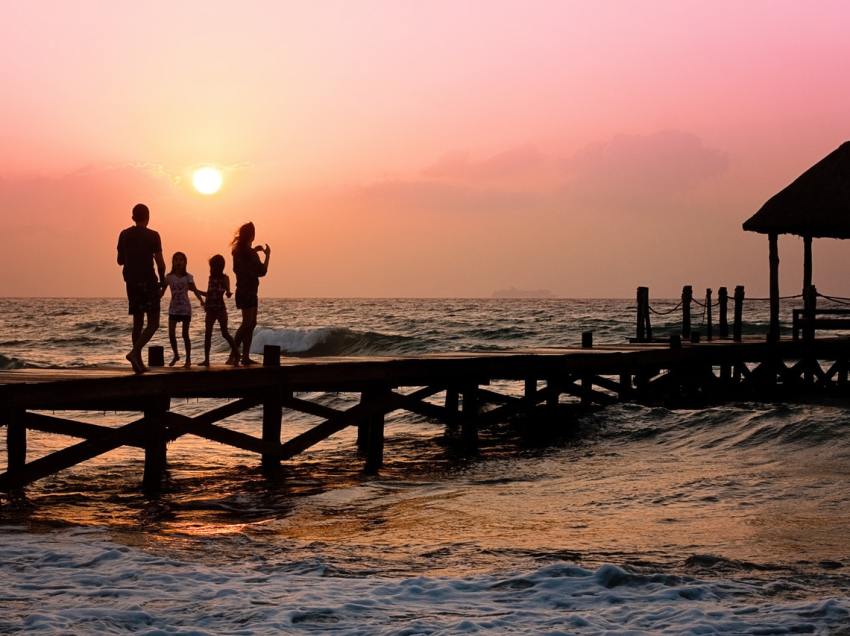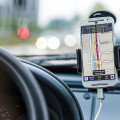Inspired by a reader’s friction with her family regarding financial and lifestyle decisions, today we’ll jump down a rabbit hole with this multi-faceted case study illustrating how various upbringings and ranges of financial experience have played out in people’s lives over the years.
Dear Nora,
My grandmother’s family lost everything in the Depression of the 1930’s, and she thinks I’m crazy to invest money for retirement because the bank will lose it all. Meanwhile my parents come down hard on me for being “frivolous” with my money and living like I do, working odd jobs then taking long-term trips. They want me to get a “real job” with a pension. I can’t do anything right, and I’m second-guessing everything!
What did your family think of your decision to travel full-time? You must have gotten a ton of backlash. How do you deal with it? – Grace
You know, it’s interesting: I received surprisingly little backlash or judgement when I announced to my family and friends that I was selling everything to travel full-time.
It even seemed a counter-intuitive decision at the time; I was running a financial planning practice that had started really taking off, and technically all I had to do was sit back and watch the money roll in. Instead, I sold the lot in favour of a life of being proverbially homeless, and an eventual career as a writer (which is not exactly a ticket to riches).
But I think the decision I made to travel full-time, and the subsequent reactions I got from my family, had a lot to do with my upbringing, background, and financial experience.
B.J. Neblett said “We are the sum total of our experiences. Those experiences – be they positive or negative – make us the person we are, at any given point in our lives. And, like a flowing river, those same experiences, and those yet to come, continue to influence and reshape the person we are, and the person we become. None of us are the same as we were yesterday, nor will be tomorrow.”
I think this quote in itself is all the more reason for us to get out there and travel and experience more of life, for better and worse. (See also: 12 Life Lessons I Learned from 12 Years Abroad)
But it also conjures up the mindfulness expression “wherever you go, there you are”….and I think every decision we make – whether it’s to travel, or how we travel, or not to travel at all – depends on our inner programming. And since money makes the world go round, that programming is often directly related to our financial experience.
Raised by Entrepreneurial Opposites
Before I delve into the fascinating stories of the people below, I’ll tell some of my own story, which shows how my financial experience and upbringing played a key role in creating my (unconventional) life.
Both my parents are entrepreneurs – musicians, in fact. This means two things: 1) we never had much money (but neither did we experience financial hardship), and 2) I grew up in a household where writing your own paycheque was a way of life. So it stands to reason that I embraced an entrepreneurial lifestyle myself, early in my 20s.
But being entrepreneurs was where my parents’ commonalities ended. Financially, they were complete opposites. Dad was a saver, which inspired me to start saving and investing money early in life; a gift that ultimately enabled me to secure my retirement by the time I turned 30, thanks to compound growth. (See also: 11 Financial Moves in Your 20s That Set You Up for Life)
By contrast, Mum was a spender. From her, I learned the art of living for today, sharing generously, and enjoying some of the finer things in life. She encouraged me to join a high-school trip to China – an experience that inspired the travel bug and would change my life insurmountably.
Being raised between these two financial extremes allowed me to sample the best of both strategies, and taught me my #1 greatest financial and life lesson: Everything in moderation. Plan for tomorrow, but not at the expense of living for today.
So while I saved and invested money, and strategically chose the best credit cards which I paid off every month without fail, I also enjoyed a fantastical life filled with experiences like competitive skydiving, motorcycle racing, acting/singing/dancing, and eventually, full-time travel. To this day, I continue to write my own paycheque, save for my future, and also to live each moment to the fullest.
I’m not the only one whose life has been coloured by the past. Below are the stories of eight people who grew up all over the world and have lives as varied as their upbringings.
What surprised me – and perhaps might surprise you as well – is the sheer variety of experiences, and the unpredictable ways they played out over the years.
Financial Hardship Inspired a Fluke Career Move
Cory Varga grew up in Romania as part of a working-class family who struggled financially. Travel was an impossible dream. “I realized that I won’t ever be able to see pristine islands or the Far-East,” she said of her childhood.
While she did attend university in England, those years were lean as there wasn’t any financial aid and she had to work full-time concurrently with studying full-time. Even with a decent job after university, Cory spent years digging herself out of the debt she’d acquired and she struggled to pay rent.
“With no money to have a social life, my only escape was the internet, so I took it as an opportunity to pursue web design as a hobby. My hobby became a part-time side job, then an actual career path: a starting point to set up my own company. With my own company up and running and a decent income, I started travelling the world.”
Cory now runs two companies (one of which is You Could Travel, which inspires people to embrace their travel dreams) and she travels the world almost full-time with her husband. “I did get to visit that pristine island and the Far East…and can afford the luxuries I never thought possible.”
Growing Up With Money Created Problems Later On
While Annick’s upper middle class upbringing was far from a hardship, it did teach her some harsh lessons later on in life. “We grew up taking trips that others thought exotic – we lived in South America and would travel to the U.S. or Canada for the summer months. I assumed that everyone travelled like this.”
As an adult, she wanted her own children to have the same experiences, and she racked up a ton of credit card debt in the process. “It took us a while to figure out how to get the value of the experience rather than spending a lot of money,” says Annick. Luckily she figured it out, and now shares her ideas and strategies for travelling in an affordable way on her website The Common Traveler.
Savvy Spending Early on Led to Creative First Class Vacations
Lou Haverty’s parents emphasized saving and not spending recklessly. But they did honour life experiences, and took at least one big family vacation each year; conscious of keeping costs low by avoiding expensive hotels and travelling by car.
So Lou got the travel bug, but was also curious about other ways to do it. “I’ve retained my parents’ lessons about saving money, but I’ve always had a desire to take more expensive vacations and fly first class; I just never wanted to pay for it!”
This desire inspired Lou to maximize his credit score and use credit cards to earn miles for first class flights. Now he enjoys travelling in style without the associated bill. “I try to take one really expensive vacation each year. I love the vacations as long as I can pay for them with miles and not cash.”
Lou’s upbringing not only inspired smart travel spending, but also a financial savvy that forms the basis of his website Financial Analyst Insider.
Poverty and Financial Hardship Inspired an Early Retirement and Full-Time Travel
Bonnie Truax had a rough go of it, growing up well under the poverty line, and then marrying a man with overwhelming debt. She bottomed out at the age of 30 when she left her husband, was penniless, and even briefly homeless.
This experience actually helped Bonnie to take some risks that paid off. “[It alleviated] some of my fears of losing it all again. It gave me the confidence that life can go on, I can get back up. It is sometimes worth it to risk it all,” she says.
In the next 13 years, Bonnie enjoyed a great career and met her next husband. Together they worked towards financial freedom, and ultimately retired at 43. They have been travelling full-time for the last two years.
Bonnie’s current travel lifestyle is also affected by her basic upbringing. “Having lived with very little allows me to travel rather inexpensively. We don’t need luxury; we just want to see the world. I believe all my experiences have prepared me for where I am now and is part of the reason why I love every day so much.”
Bonnie and her husband now chronicle their travel adventures at 43 Blue Doors.
Prioritization and the Sharing Economy Opened Doors
Cori Carl’s parents had their priorities, which included both financial security and travel. They saved for retirement and paid off their mortgage early, but they also found ways to travel as a family without being extravagant.
“My mother was a German teacher and took her students to Europe every four years. Both of my parents would go for free as chaperones, so my parents only had to pay for my sister and I,” she says. Her dad also traveled for work and often turned his business trips into family vacations.
When Cori’s family wasn’t travelling, they travelled vicariously by hosting exchange students from abroad. This inspired Cori to use the sharing economy herself in her adult years. “Hosting so many students over the years made it much easier to wrap my head around travelling with the sharing economy. Now I travel by staying with local families on CouchSurfing, home exchanges, and house sitting.”
While the sharing economy keeps Cori’s travel expenses low and allowed her to spend a lot of her 20s backpacking, she’s quick to point out that she still paid off her mortgage at 30, inspired by her parents’ example.
Cori now works remotely (also inspired by her Dad, who had a remote career in the 90s) and travels at will. She inspires others with her knowledge at Remote Swap.
Mum Provided What She Didn’t Have Growing Up; Inspired a Whole Lifestyle
Antonella Pisani had a middle class upbringing, and her mother made it a point for the family to travel. “She always wanted us to explore. My mom was raised in Nicaragua, and I think [travel] was a huge luxury for her,” says Antonella.
“As an adult, I was fortunate enough to find myself in a high paying career, and the travel bug bit me hard. My trips became much more exotic through the years,” inspired by the travel-centric foundation her mother gave her.
Antonella took this travel bug to new levels when she left the corporate world behind to embrace the full-time travel lifestyle as a digital nomad, running a consulting business and an inspirational product company called FACT Goods.
Going Against the Grain, but Feeling the Family Pinch
Rachel Smets was raised to get a job for life, and to prioritize financial security and certainty above all else. Imagine their surprise when Rachel moved abroad at 24 years old! “My family didn’t talk to me for a year as this didn’t fit into our family behaviour,” says Rachel.
Even though Rachel went against her family’s desires, her upbringing still dictated her decisions, and over the next 15 years of living around the world, finding a secure job in each new country preceded every move. “My urge to travel and explore was big, but through my upbringing, I always looked for jobs so I had the income.”
But over the years Rachel also built a remote business using her innate talents, and now she has quit all jobs and is embracing a more travel-centric lifestyle. Still, she’s cautious: “I’m passionate to travel and explore, but my financial upbringing lingers on my mind.”
Find out more about Rachel’s fascinating career and life abroad at Rachel Smets.
Upbringing Doesn’t Matter: Perception Does
In examining the stories of all the people above (including my own), I realized that there is no one “formula” for how our financial experience influences the life decisions we make. This final story illustrates this concept beautifully.
Suzanne Garber and her brother grew up in the same household, but their lives went in opposite directions as a direct result of their upbringings. Their parents were expats, and between the ages of seven and 13, they lived in Spain, Egypt, Algeria, and the Dominican Republic.
For Suzanne, travel was a way of life, and she went on to found an international healthcare technology firm (Gauze.net) that helps people find hospitals abroad when they get sick while travelling. Her brother, by contrast, is a stay at home dad who hates to travel.
“I don’t think socio-economics played a part in our travel styles; our PERCEPTIONS of what travel is played a larger role. I associated travel with adventure, learning, and culture. My brother viewed travel as loss – of friendships, time with parents, and stability. We were raised in the same home, in the same family and under the same economic status.”
There is No Formula.
Going back to the reader’s question of how to reconcile our background and family values with our lifestyle, I can only conclude that there is no right or wrong answer.
Some people profiled here did the opposite of what they were raised to do.
Others upheld the exact family values that were instilled in them.
While I still believe our inner programming is directly related to our upbringing and financial experience, I also think the variety of outcomes ranges so widely that there is no clear-cut path. The greatest guidance we can get in life is from ourselves.
Photo Credit: Pixabay.com jill111
Dear Nora, financial experience










Dear Nora,
Thank you for sharing my story living abroad and financial importance!
Love the way you write. I’ll be sharing it…correction: I AM sharing it as we speak!
Anything else I can do, just give me a shout 🙂
~Rachel Smets
Thank YOU, Rachel! Your story is quite compelling. 🙂
Absolutely agree. For example, I have a friend from a wealthy household and well educated parents. But all he wants to do is to repair motors.
Hey Max,
Good for him! We have to do what makes our heart sing. Perhaps it’s his well-heeled background that has given him the courage and freedom to choose his path in this fashion.